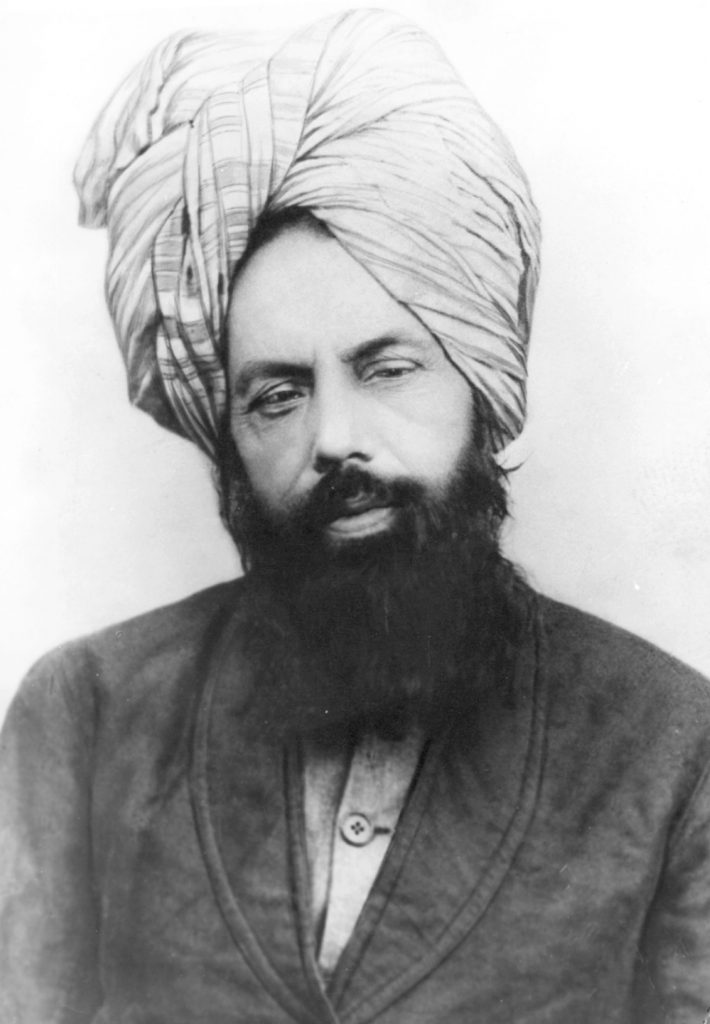Introduction
You know the story of Noah’s Ark — everyone does.
Chances are, you don’t believe it literally happened. You think it was just a Bible story.
But the incredible thing is that it’s not. The idea of a universal flood as a punishment from God is something which transcends cultures.
Across the world, there are strikingly similar myths and legends in different religious communities.
One writer tells us:
Especially common in world mythologies are stories about world-ending floods and the chosen individuals that managed to survive them, like the biblical Noah and Utnapishtim, the ark builder in the Epic of Gilgamesh, a text thought to be even older than the Abrahamic religions. In Aztec mythology, a man named Tata and his wife Nena carve out a cypress tree after being warned of a coming deluge by the god Tezcatlipoca, while Manu, the first man in Hindu folklore, was visited by a fish that guided his boat to the peak of a mountain. The list goes on.
Tim Brinkhof, BigThink
One explanation of this is that the same story could be passed around different cultures.
But the sheer diversity of cultures makes this seem a little implausible.
Could a story spread so promiscuously across continents thousands of years ago?
Carl Jung, the famous psychologist, would have us believe that this kind of story is just baked into our psychology from birth.
But this seems off — how can a human mind be born with entire stories, before it knows any words and before it has seen any rain or boats?
I suggest that there is another explanation:
That Noah’s flood actually happened.
Now I know what you’re thinking…
- How does that get the idea across the world?
- The Bible story is too crazy to be real.
Well, one explanation is that there really was a massive flood covering the entire world. But that doesn’t explain the similarities in the idea of a Holy Man saving them all. Also — a flood covering the entire world is pretty far-fetched, and has no scientific evidence for it.
So let’s think of another solution…
What if our current cycle of humanity after evolution was mainly one group for over a thousand years?
(If you don’t know what I mean by ‘current cycle’, check out this and this article).
Maybe that civilisation did experience a huge flood, before dispersing across the world over the subsequent millennia?
What if they took their experience with them, and that slowly transformed into so many different myths?
That would explain one half of the story… but is the story plausible at all?
Well the Bible story isn’t, for reasons we’re about to see. But the Quranic story is.
What you’re about to read is how the Quran seems to correct what the Bible exaggerates.
It makes the Bible story understandable, and reasonable.
And it gives the name of where the Ark may still be today…

The Bible Narrative
A few hundred years ago, the reality of a universal flood in Noah’s time was the basic assumption in geology.
This all unravelled as geological evidence against the Flood started coming in, causing huge upheaval among Christian scientists, as Rational Religion writers Borthwick and Nasser discussed here. The fossil record gave no evidence of a universal flood, and scientists eventually gave it up as a belief.
Now let’s review exactly what the Bible says. Genesis 6-10 is where the Old Testament covers the flood. The essentials of the story are the following:
- The world was corrupted with violence and sin. God decided to bring floodwaters on the Earth to “destroy all life under the heavens, every creature that has the breath of life in it.”
- Therefore, God told Noah to make a huge ark, with specific dimensions.
- In this ark was to be Noah, his sons and their wives, and his own wife, along with two of every kind of bird and every kind of animal, as well as food for all the inhabitants.
When Noah was 600 years old, (which was the norm back then according to the Genesis 5-6), the floods came and stayed for 150 days, raising the ark above even the mountains. - All other living beings were killed.
- Eventually the Earth dried out (within months), and the inhabitants of the ark were instructed to be fruitful and multiply.
- Noah sacrificed some animals and birds to God, and God consequently promised never to send universal punishments again. God gave the rainbow as a sign of this promise.
- Noah then died at 950 years old.
There are a few scientific issues with this narrative. To name three key ones:
- A universal flood covered all land on Earth and then drained in a matter of months.
- Noah literally lived 950 years.
- All species currently on Earth were brought upon the Ark.
Let’s tackle the universal flood idea.
This fell out of favour with the work of Reverend William Buckland (1784-1856), the first person to hold a faculty position in Geology at the University of Oxford. While he initially intended to show that geology supports the ‘Deluge hypothesis’, he found that his findings contradicted the idea of a universal flood a few thousand years ago.
Geologist James Hutton (1726-1797) and Buckland’s great student, Charles Lyell (1797-1875), among others, claimed that the evidence showed the Earth was not just a few thousand years old, but extremely ancient.
Meanwhile, the sheer number of species being discovered made it difficult to believe that they were all onboard one boat.
Meanwhile, the distribution of species on Earth didn’t make sense if people assumed that the descendants of the Flood took animals with them as they migrated away.
For these reasons, by the mid-19th Century, taking the Noah story literally was seen as impossible by most educated western intellectuals. However, the question remained why a story that seemed fundamentally untrue in many of its details was recorded in what was apparently divinely-inspired scripture.

The Quran’s Narrative
The Holy Quran, like the Bible, gives the story of Noah. The few pages linked here constitute one of the most detailed descriptions of what happened to Noah, in the readable translation of Sir Zafullah Khan.
(For research purposes, here are other linked references: 3:34, 10:72-74, 11:26-49, 23:24-31, 25:38, 26:106-121, 37:76-82, 51:47, 54:10-17, 71:2-29).
The Quran’s story is quite different to the Bible’s in many respects. While the Bible gives us absolutely no detail about Noah’s interactions with his people, the Quran is replete with such details. It tells us how their people doubted his claims of divine revelation, how they mocked him for having followers of a low social status, how they repeatedly asked him to bring about the forewarned punishment, and so much more.
It then goes on to sketch a similar narrative to the Bible’s, but with several changes in emphasis:
| Bible | Quran |
| Flood is universal. | Flood is not mentioned as universal, it only relates to Noah’s people. |
| Ark was built on a detailed, spectacular scale. | No details on scale given, no reason to think it was on a spectacular scale. |
| Ark only housed Noah’s family, all of them. | Ark houses Noah’s followers and his family, apart from his son. |
| No mention of Noah’s son disbelieving. | Details Noah’s son disbelieving and the rejection of Noah’s prayers for him. |
| Flood lasts for 150 days. | Flood duration not specified. |
| Ark rides above mountains. | Ark rides waves that are like mountains (11:43). |
| Ark rests on Mount Ararat. | Ark rests on ‘Judi’. |
| All animals on Earth included in Ark. | Noah asked to gather ‘each’/ ‘every’ animal, understood to be those in his area. |
| Noah lives 950 years, the flood starts when he is 600 years. | Noah’s teaching lives 950 years, all humans have normal lifespans. |
| Noah’s progeny repopulate the Earth (apart from the Nephilim). | Noah’s progeny predominate over others, but they are not the only humans on Earth. |
As we can see, the story in the Quran has no scientific problems that would lead people to consider this a crazy myth.
Instead it gives a more plausible and natural understanding of Noah’s story, while still demonstrating Noah’s Prophethood, and showing how God intervenes in human affairs to fulfill His Purpose.
It also gives a stirring account of how Noah’s prayers for his biological son were rejected, and how he was informed that God did not count him as part of his family in a real, spiritual sense. Thus his son turned away from refuge in the Ark, and subsequently drowned.

Universal or Local Flood?
The Bible is very explicit that the flood covered the entire Earth:
The waters rose and increased greatly on the earth, and the ark floated on the surface of the water. They rose greatly on the earth, and all the high mountains under the entire heavens were covered. The waters rose and covered the mountains to a depth of more than fifteen cubits. Every living thing that moved on land perished—birds, livestock, wild animals, all the creatures that swarm over the earth, and all mankind.
Genesis 7:18-21
The Quran says nothing about this. It only says that the disbelievers were drowned, and that these disbelievers were of Noah’s people only. There is nothing about the entire Earth being covered. In fact, as we described here, the Quran suggests that there were humans on Earth apart from the direct descendants of the Prophet Adam, peace be upon him.
This is also consistent with the following verse which also confirms that there others continued to live apart from the descendants of Noah.
یلَ یَـٰنُوحُ ٱهۡبِطۡ بِسَلَـٰمࣲ مِّنَّا وَبَرَكَـٰتٍ عَلَیۡكَ وَعَلَىٰۤ أُمَمࣲ مِّمَّن مَّعَكَۚ وَأُمَمࣱ سَنُمَتِّعُهُمۡ ثُمَّ یَمَسُّهُم مِّنَّا عَذَابٌ أَلِیمࣱ
“It was said, ‘O Noah, descend then with peace from Us and blessings upon thee and upon peoples to be born of those with thee. And there will be other peoples whom We shall grant provision for a time, then shall a grievous punishment touch them from Us.’”
The Holy Quran, 11:49
Clearly then, the flood was not universal and did not kill all humans.
How Was Noah’s Homeland Flooded?
The Quran records at multiple places that the flood came after heavy rain from above, and springs gushing forth from below. If so, it indicates that it was a terrain with many springs. Further hints about the terrain are given in these verses:
وَهِیَ تَجۡرِی بِهِمۡ فِی مَوۡجࣲ كَٱلۡجِبَالِ وَنَادَىٰ نُوحٌ ٱبۡنَهُۥ وَكَانَ فِی مَعۡزِلࣲ یَـٰبُنَیَّ ٱرۡكَب مَّعَنَا وَلَا تَكُن مَّعَ ٱلۡكَـٰفِرِینَ
قَالَ سَـَٔاوِیۤ إِلَىٰ جَبَلࣲ یَعۡصِمُنِی مِنَ ٱلۡمَاۤءِۚ قَالَ لَا عَاصِمَ ٱلۡیَوۡمَ مِنۡ أَمۡرِ ٱللَّهِ إِلَّا مَن رَّحِمَۚ وَحَالَ بَیۡنَهُمَا ٱلۡمَوۡجُ فَكَانَ مِنَ ٱلۡمُغۡرَقِینَ
“And it moved along with them on waves like mountains. And Noah cried unto his son, while he was keeping apart, ‘O my son, embark with us and be not with the disbelievers.’ He replied, ‘I shall soon betake myself to a mountain which will shelter me from the water.’ He said, ‘There is no shelter for anyone this day, from the decree of Allah, excepting those to whom He shows mercy.’ And the wave came in between the two; so he was among the drowned.”
Holy Quran 11:43-44
Commenting on this, the Second Khalifa of the Ahmadiyya Muslim Community notes:
“The verse shows that the place where Noah lived was surrounded by mountains. This is why his son said that he would take shelter in a mountain. The word جبل (a mountain) used as a common noun points to the fact that there was a chain of mountains on one of which Noah’s son wished to take shelter. In fact, the place appears to have been a valley with mountains rising on all sides. That such a place should become quickly flooded with heavy rain is not extraordinary.
The words, which will shelter me from the water, show how bigoted men shut their eyes to stark realities to the last. The flood is rising, but Noah’s son still entertains doubt about the truth of his father’s Message.”
5- Volume Commentary
In the Biblical story, the Ark is said to rest on Mount Ararat. The Quran on the other hand, says it rested at a place called ‘Judi’, without saying whether this was a mountain or not. The location of Judi remains an area of active research.

How Old Was Noah?
The Bible very explicitly says that the flood starts when Noah is 600 years old, and Noah dies when he is 950 years old:
“Noah was six hundred years old when the floodwaters came on the earth.” (Genesis 7:6)
“Noah lived a total of 950 years, and then he died.” (Genesis 9:28)
The Quran has a different approach to discussing the age of Noah with words that could be interpreted to mean that Noah lives to 950 years old:
وَلَقَدۡ أَرۡسَلۡنَا نُوحًا إِلَىٰ قَوۡمِهِۦ فَلَبِثَ فِیهِمۡ أَلۡفَ سَنَةٍ إِلَّا خَمۡسِینَ عَامࣰا فَأَخَذَهُمُ ٱلطُّوفَانُ وَهُمۡ ظَـٰلِمُونَ
“And We certainly sent Noah to his people, and he dwelt among them a thousand years save fifty years. Then the deluge overtook them, while they were wrongdoers.”
Holy Quran, 29:15
However, given this interpretation is ruled out by other verses of the Quran. 21:35 says that people do not live forever or have exceptionally long lifetimes. 19:9 and 15:5 both refer to the Prophets Zachariah and Abraham, respectively, as reaching extreme old age. They are universally accepted to have normal-range lifespans. Thus, if the Quran accepted that Noah lived 950 years, why would Abraham and Zachariah be described as being extremely old despite being contemporary pensioners? They would simply be mere toddlers compared to 950-year old Noah.
Moreover, according to the Quran, with old-age comes weakness (30:55) — so how could an ancient Noah be making ships? Moreover, the people of Noah complain that he is a man ‘just like ourselves’ and they see nothing special about him (11:28). If he was ancient, this wouldn’t make sense, unless they are all ancient, but about this there is no mention of this in the Quran.
It should be clear therefore that the idea of Noah being literally ancient is effectively ruled out by the Quran. So how else to interpret this verse talking about a 950 year lifespan?
The obvious interpretation, taken by Ahmadi Muslims, is to understand that it is not Noah personally that is spoken about here, but his spiritual teachings. After all, the spiritual message of a Prophet is part of his identity, and he can be said to ‘live’ as long as that message lives. It is for that reason that the Prophet Muhammad, peace be upon him, said that:
بُعِثْتُ أَنَا وَالسَّاعَةُ كَهَاتَيْ
Ibn Majah
“I and the Hour have been sent like these two,” and he held up his two fingers together.”
The Hour here is Islamic terminology for the apocalypse, or the final resurrection. The Prophet’s life was not immediately followed by this, but his dispensation is the last one on Earth. Thus, in this respect, the Hour will immediately follow ‘him’, meaning that his dispensation will last as long as humanity does. A Prophet therefore represents their dispensation. Noah’s dwelling among his people therefore must mean that his teaching dwelt among them for around a millennium. This commentary elaborates on this based on the specific Arabic used:
“Noah’s Dispensation seems to have lasted about 950 years. In describing the limit of Noah’s age two words سنة and عام have been used. Whereas the root meaning of the former word possesses a sense of badness, that of latter has a sense of goodness.“
The 5-Volume Commentary
Thus his dispensation lasted for about a thousand years, most of which witnessed spiritual decay, but 50 of which brought spiritual prosperity. What made the difference? One interpretation is that the years of spiritual brightness were those under the direct care of Noah himself. During this period, he was predominantly rejected by his people, thus in this sense did not ‘live among them.’
Another possible interpretation is opened by the 4th Khalifa of the Ahmadiyya Muslim in an answer he once gave on this. Again, the life of Noah refers to the life of his spiritual message, which saw a gradual decline over 900 or so years. At the end of this came Abraham (37:84), who oversaw a spiritual revival of Noah’s monotheistic teaching. After 50 years, Abraham received his own divine book, which was an advancement on the teachings of Noah. In this way, Noah’s teaching was revived while he did not dwell among them.
While this area remains very much open to interpretation, one thing can be said for certain — had Noah been alive for those 1000 years, the slide of his people into idolatry would have been under his watch; from a theological perspective, every Muslim must reject this.
How Many Animals in the Ark?
The Bible goes through great pains to explain that literally every species was gathered into the ark:
“They had with them every wild animal according to its kind, all livestock according to their kinds, every creature that moves along the ground according to its kind and every bird according to its kind, everything with wings. 15 Pairs of all creatures that have the breath of life in them came to Noah and entered the ark. 16 The animals going in were male and female of every living thing, as God had commanded Noah.”
Genesis 7:14-16
The Quran only says the following:
حَتَّىٰۤ إِذَا جَاۤءَ أَمۡرُنَا وَفَارَ ٱلتَّنُّورُ قُلۡنَا ٱحۡمِلۡ فِیهَا مِن كُلࣲّ زَوۡجَیۡنِ ٱثۡنَیۡنِ وَأَهۡلَكَ إِلَّا مَن سَبَقَ عَلَیۡهِ ٱلۡقَوۡلُ وَمَنۡ ءَامَنَۚ وَمَاۤ ءَامَنَ مَعَهُۥۤ إِلَّا قَلِیلࣱ
“So We sent revelation to him, saying, “Make the Ark under Our eyes and according to Our revelation. And when Our command comes, and the fountains of the earth gush forth, take thou into it two of every kind, male and female, and thy family, except those of them against whom the word has already gone forth. And address Me not concerning those who have done wrong; they shall be drowned.”
Holy Quran 11:41
The same words are used in 23:28. The word used for ‘every’ here is kul (کُلٍّ) which means every, or each. It is used similar to how we use ‘all’ in English. Its meaning is governed by context. If there are no doctors in a hospital, and you are told ‘all the doctors are on strike’, you would understand that all the doctors here are on strike, and would not generalise this to all doctors on Earth. Similarly, ‘every’ here is understood to refer to all the animals in Noah’s vicinity. The commentary referenced above notes:
“The word کل (all) does not here mean all the animals of the earth. It only means all such animals as Noah needed. It has been similarly used in a restricted sense in other verses of the Quran as well. For instance, in 27:24, which speaks of the Queen of Sheba, we read, “She has been given everything.” But all commentators are agreed in holding that by “everything” is here meant all that the Queen of Sheba needed and not everything in the literal sense of the word. If she had possessed “everything” in the literal sense of the word, she would have had in her possession everything existing in the world and Solomon dared not have said to her ambassador, Go back to them, for we shall surely come to them with hosts, against which they will have no power, and we shall drive them out from there in disgrace, and they will feel abased (27:38). Moreover, the Ark certainly was not big enough to carry a pair of all kinds of animals found in the world. The addition of the word “two” also shows that it was meant that as few animals were to be taken as were absolutely necessary.”
The 5-Volume Commentary
One can see how originally Noah was requested to get ‘everything’ he needed, but how this was then magnified and distorted to become the tale we find in the Bible.

The Promised Messiah on Noah & Mount Judi
Hazrat Mirza Ghulam Ahmad, peace be upon him, the Founder of the Ahmadiyya Muslim Community, was once asked about Noah. His response was enlightening, and highlights the difference between the True Islam and Christianity:
“The Bible and science possess such enmity between one another as though they were two wives married to the same husband. It is written in the Bible that the flood covered the entire world, and that the ark was three hundred cubits long and fifty cubits wide, and that Noahas brought into the ark seven pairs of each animal that was pure and two pairs of each animal that was impure; however, both these notions are false.
Firstly, Allah the Exalted has never punished a nation until He sends down His message to them through the Messengers, and when did Noahas preach to the entire world so that the whole of it deserved to be drowned?
Secondly, how could all the creatures of the world, animals, both beast and bird, seven pairs of each, or two pairs of each, fit in such a small ark which was only three hundred cubits long and fifty cubits wide? This proves that the book has been altered and it is now ridden with many errors. It is astonishing that various scholars of Islam, in their simplicity, have included such tales in their own works as well. It is the Holy Quran alone that is free from such senseless stories.
These sorts of allegations cannot be levelled against the Holy Quran; for it neither mentions the length and width of the ark, nor does it state that the flood engulfed the whole world in its entirety. The Holy Quran only uses the Arabic word ‘al-ard’, which means ‘the land’ in which Noahas preached his message. The word Ararat, which is the name of the place where Noah’s ark came to rest, is actually a compound from ‘ara-reet’, which means, ‘I see the peak of the mountain.’ The word ‘reet’ means ‘the peak of a mountain.’ In the Holy Quran, Allah the Exalted has used the word Judi, which means ‘My munificence and grace,’ that is to say, the ark rested on God’s munificence and grace.”
Malfuzat Volume III, pg. 237
This does not mean that the Ark can no longer be found. Instead, Ahmadas is pointing out that the Quran is teaching us that refuge is found only in the grace of God, by following his Messengers, with the Ark becoming a physical representation of this timeless message.
As for some potential theories on where the Ark rests today, see here and here.

Conclusion
The Bible gives us a fairly fantastical-sounding story that focuses on the punishment of Noah’s people via a universal flood. The Quran’s account is much more balanced. Had it been prevalent in the West, it would not have been reason to reject scripture, and would not have laid the groundwork for western atheism.
Despite being a later scripture, one can see how the original story given by the Quran may have been distorted over generations into that given by the Bible. ‘All the animals nearby’ became ‘all the animals on Earth.’ ‘The flood covered this entire area’ became the ‘flood covered the Earth.’ ‘Noah lived a long life and his teachings survived for a millennium’ became ‘Noah lived for a millennium.’
That this is so, even though the Quran was revealed much later than the Bible, indicates that the Author of the Quran was indeed the Noah’s Lord. For as the Quran says after relating Noah’s travails:
تِلۡكَ مِنۡ أَنۢبَاۤءِ ٱلۡغَیۡبِ نُوحِیهَاۤ إِلَیۡكَۖ مَا كُنتَ تَعۡلَمُهَاۤ أَنتَ وَلَا قَوۡمُكَ مِن قَبۡلِ هَـٰذَاۖ فَٱصۡبِرۡۖ إِنَّ ٱلۡعَـٰقِبَةَ لِلۡمُتَّقِینَ
“This is of the tidings of the unseen which We reveal to thee. Thou didst not know them, neither thou nor thy people, before this. So be thou patient; for the end is for the God-fearing.“
The Holy Quran 11:50











2